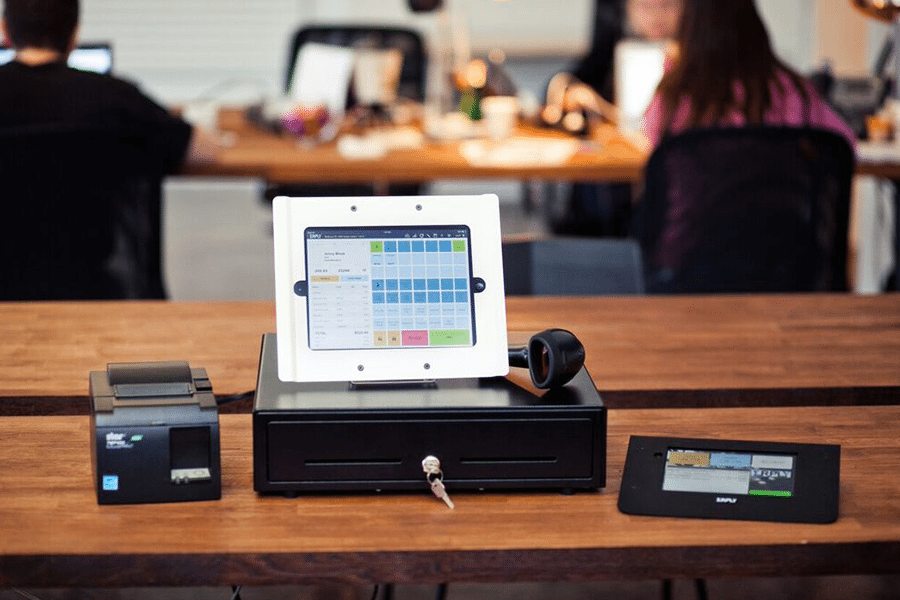Whether you’re looking to secure financing, trying to finalize rent, or following a business plan, at some point, you are going to hit the step where you get bar insurance. When it is time to open a bar, getting insurance is going to be an important step before customers start buying drinks—it can mean the difference between success and failure for your business.
Bar insurance is a term that refers to the policy or combination of business insurance policies you’ll need to purchase to protect your business from claims of negligence or unpredictable incidents like a fire. The most common types of bar insurance policies are general liability, commercial property, liquor liability, and workers’ compensation insurance.
Key Takeaways:
- Bar insurance costs will depend on your business structure, history, and location but you can expect to pay at least several thousand annually for all coverages listed above.H3 Sub-Heading
- Bar insurance is a policy or combination of small business insurance policies that protect your business.
- Key coverages to consider are general liability, commercial property, workers’ compensation, and liquor liability insurance.
- While not every type of bar insurance coverage is required, workers’ compensation is required in every state except Texas and South Dakota.
- Banks and landlords can require proof of insurance when starting a business or exploring rental options.
What Is Bar Insurance?
Small business insurance protects your business from financial harm. This harm comes in the form of a claim either made by another (third) party or by yourself. A third-party claim is called liability and is a result of your alleged negligence. A first-party claim would be one you file for damage to your property or even loss of business income. Bar insurance is simply a policy or collection of policies that provide protection for your bar from liability claims or for the property.
While there are several types of small business insurance policies, there are core policies every bar owner should consider: general liability, commercial property, workers’ compensation, and liquor liability. Let’s take a closer look at each of these coverages.
General Liability for Bars
This is the most common type of liability policy. As the name implies, general liability gives you a very broad range of protection from different types of claims. It is often called “slip and fall” coverage because that is the most common type of loss you may experience.
For example, your country western bar has line dancing every Thursday night and $2 draft specials. As the night goes on, the combination of peanut shells and spilled beer creates a hazard on the dance floor and one of the customers slips and falls, breaking her elbow. For this situation, you’d want to file a general liability claim.
A standard general liability policy covers property damage, bodily injury, and personal and advertising injury. Additionally, most general liability policies will carry product liability (think food poisoning) and damage to rented premises from losses like fire.
Beyond that, many providers will offer endorsements for general liability. An endorsement, sometimes called a rider, is a layer of extra protection you can purchase. Two key endorsements for bars are liquor liability and hired and non-owned auto liability (HNOA). HNOA is an important endorsement if your bar has any type of delivery service where employees use their own car.
Depending on endorsements, general liability may be one of the only types of policies you need to purchase.
General liability has several coverage components and, depending on endorsements, it may be one of the only types of policies you need to purchase. The losses a standard general liability policy covers are:
- Property damage
- Bodily injury
- Personal and advertising injury
Additionally, most general liability policies will carry product liability (think food poisoning) and damage to rented premises from losses like fire.
Beyond that, many providers will offer endorsements for general liability. An endorsement, sometimes called a rider, is just a layer of extra protection you can purchase. Two key endorsements for bars are liquor liability and hired and non-owned auto liability (HNOA). HNOA is an important endorsement if your bar has any type of delivery service where employees use their own car.
Commercial Property Insurance
Even if you rent a space for your bar, the odds are high that you own a lot of the equipment and furniture inside the building. To protect those from loss, you’ll want commercial property insurance. This type of insurance will have a deductible—the amount you agree to pay every time you have a claim.
Over the years, I’ve heard many people say that because a loss is under their deductible, they aren’t going to claim it. I get it. Claims history does impact premium. But I also know that usually once you start fixing something, costs always rise. And if you’ve already started to repair damage before filing a claim, this can create problems for the insurance company. The best course of action is to at least discuss every potential claim with your agent before taking any action.
Depending on the type of property you own, you may want to explore purchasing a business owner’s policy (BOP). A BOP is a bundled policy package designed for small businesses. It combines general liability, commercial property, and loss of business income into one policy. Usually, it is cheaper to purchase a BOP than all three of its coverages separately.
Liquor Liability
Believe it or not, every insurance company that I know of excludes coverage for alcohol-related losses on general liability. An exclusion means they won’t cover that type of loss. For alcohol-related losses, like serving an underage patron or serving someone who is clearly intoxicated and then does something dumb that an intoxicated person will do—like punch a stranger’s car or try to impress someone by jumping off a table and then getting injured—you’ll need liquor liability insurance.
This type of bar insurance can be purchased either as a standalone policy or an endorsement for general liability.
Workers’ Compensation
Workers’ compensation is the only coverage on this list that is legally required. Workers’ compensation is required in every state except for Texas and South Dakota—but even those states have scenarios where employers still have to offer workers’ compensation.
This coverage helps your employees who are either injured or ill due to their work. It helps them by paying for medical treatment, rehabilitation, and some form of wage replacement. Workers’ comp also helps employers by giving them liability protection when an employee is injured.
Keep in mind that while it is required in nearly every state, the threshold for when it is required can change. For example, in Pennsylvania, workers’ compensation is required for all employees—part-time or full-time and seasonal workers. So if you operate a bar in PA and have one part-time employee, you’ll need to offer them workers’ comp. However, if you are in Florida, workers’ compensation is required after you have four employees.
Specialty Coverages for Bar Insurance
Small business insurance companies have various types of insurance policies. The choices can seem overwhelming. Our goal here is to provide you with the essentials a bar would need but a few others may apply to your specific business.
Commercial Auto
If your bar owns any type of vehicle, whether a delivery vehicle or a food truck, you will need commercial auto insurance. This is required in every state. The required coverages will change by state but some form of liability insurance is also included in the requirement.
Host Liquor Liability Insurance
Host liquor liability is for establishments that do not produce or serve alcohol, but where alcohol can still be present on site. Its coverage ends up functioning very similarly to liquor liability, which is for businesses with a liquor license.
Special Event Insurance
If your bar holds a special event—like a concert, where tickets are sold for attendees, or if you host a beer tent off-site—you’ll need to get special event insurance. This is a short-term liability policy, usually with liquor liability included, that extends liability coverage to include an off-site location or a special event that isn’t covered by the normal policy that you have in place for your business.
Assault and Battery Insurance
Believe it or not, this is real coverage. And one that you should consider purchasing if it isn’t automatically included with the liquor liability or general liability policy for a bar. If a fight breaks out at your bar, the injured parties may not be covered. This one is a gray area, so first review your liquor liability policy to see what scenarios it does and doesn’t cover.
How Much Does Bar Insurance Cost?
I knew this was going to come up. After all, “how much does bar insurance cost” is something lots of people are searching on Google—so it must be important. And when you’re trying to make a realistic budget for your business, you need to know the cost. Here’s the thing: I can give you some estimated premiums based on real quotes but at the end of the day, your quote may be very different. I’ll explain why in a minute.
- A general liability policy for a bar can cost between $1,000 and $2,100 annually.
- Bar insurance cost for a BOP can range between $2,900 to nearly $7,000 annually.
- For liquor liability, you can expect to pay about $200 to over $2,000 annually.
These costs are averages from a number of different quotes. All of them are for very small businesses with five or fewer employees.
When providers calculate pub insurance premiums, they will take into account the following:
- Location: The geographic location—even the specific zip code—of your business can impact the premium. For example, a business close to the coast can expect a higher premium than one in the Midwest.
Hours of operation: For bars, hours of operation, or how late into the night your bar serves alcohol, are important and can have a big impact on the premium. Especially if alcohol is served late into the night. - Liquor sales: Insurance companies want to know what percentage of your revenue comes from liquor sales, so be prepared to answer this question.
- Experience: An experienced bar owner understands the risks and complexities of running a business, and providers will take that experience into consideration.
- Employees: How many employees you have is important for more than just workers’ comp. Providers care about the number of employees because each employee represents another potential risk for liability.
- Claims history: As frustrating as it can be, your claims history matters. However, it usually only matters for the last three to five years. But if you’ve had a claim, especially an at-fault loss, prepare to answer questions about this and the potential for this to negatively impact your premium.
- Training: For tavern insurance, making sure your servers are properly trained is important to carriers. Having your bartender and servers be certified through TIPS is a proactive and important step for risk management.
- Property value: If you are insuring a building or kitchen equipment, the valuation will be factored into the premium.
- Building size: The square footage of your property will impact both liability (think premise liability) and commercial property because of the insurable value.
How Bar Insurance Works
So, let’s bring this all together. How exactly does bar insurance work? It can come into play in different ways but, at the same time, it is handled the same. Something happens, you notify the insurer, they investigate the situation and reference the policy language, and then they either pay it or determine there is no coverage.
Let’s say you have a server who injures their back from the repetitive motion of carrying drinks on a tray to tables, night after night. This would be a workers’ compensation claim.
Or someone breaks into your bar and steals cases of top-shelf liquor. For that, you’d want to file a commercial property claim. Be prepared to pay a deductible for this type of loss.
A competitor learns you’ve named a drink after them using a disparaging term to describe their company and files a lawsuit against you. For this, you could utilize your general liability policy.
For each scenario, a different coverage is utilized to help you. The insurance company will investigate the loss and then, if covered, pay to resolve it. If the loss involves lawyers, the policy will offer coverage for defense expenses, too.
How to Purchase Bar Insurance
So, you’re ready to purchase tavern insurance. The good news is it really isn’t hard to get insurance. You have several options: work with a local agent, through a broker, or directly with a provider.
Agents typically work on behalf of a carrier so—while that isn’t a disadvantage—it is something to keep in mind. Brokers usually work with multiple carriers and traditionally are described as “working for the customer.” Finally, many providers work directly with customers. The advantage of this model is the policies are usually more affordable since there are no agent or broker fees.
Frequently Asked Questions
Last Bite
When the last call for drinks has been made and the bar is beginning to empty, you can relax knowing you’ve got the proper insurance for your new business.
Remember, bar insurance is a policy or collection of small business insurance policies that will protect the financial assets of your business from a loss. It helps you by investigating a loss and providing a defense, paying to settle a claim, or repairing or replacing damaged items. The most important policies for your bar are going to be general liability, workers’ comp, liquor liability, and commercial property.



